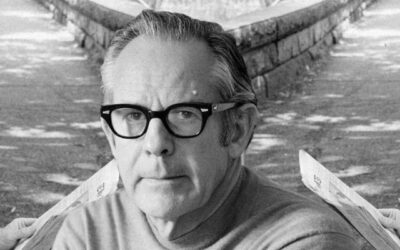 Who was Martin Buber
Who was Martin Buber
Martin Buber (1878-1965) was an Austrian-born Israeli philosopher, theologian, and writer whose ideas have had a significant impact on various fields, including psychotherapy. Buber’s philosophy, particularly his concept of dialogue and the I-Thou relationship, has been influential in shaping the humanistic and existential approaches to psychotherapy.
Buber’s Concept of Dialogue and the I-Thou Relationship
At the core of Buber’s philosophy is the idea of dialogue, which he saw as the fundamental nature of human existence. According to Buber, there are two primary modes of relating to the world: the I-It mode and the I-Thou mode.
In the I-It mode, we relate to others and the world as objects to be used, manipulated, or experienced. This mode is characterized by objectification, categorization, and instrumental reasoning. While necessary for practical purposes, Buber believed that an overemphasis on the I-It mode could lead to alienation, dehumanization, and spiritual emptiness.
In contrast, the I-Thou mode involves a direct, mutual, and present encounter between two beings. In this mode, we relate to others as unique, whole persons, rather than as objects or categories. The I-Thou relationship is characterized by openness, reciprocity, and a deep sense of connection. Buber believed that it is through such genuine encounters that we can experience the fullness of our humanity and the presence of the divine.
Martin Buber’s Disagreement with Carl Jung:
The differences between Buber and Jung came to a head in their exchange of letters, particularly in 1952. Buber expressed his concerns about Jung’s approach in a letter, highlighting what he saw as limitations in Jung’s concept of individuation.
Buber wrote: “The self cannot be discovered and built up through a relation of the individual to his own soul, but only through a relation of the individual to other individuals, to the world, and to God.”
This statement encapsulates Buber’s critique of Jung’s approach. He believed that Jung’s focus on the individual’s internal psychological processes could lead to a form of self-absorption, neglecting the fundamental importance of genuine relationships with others and the world.
Jung, in his response, defended his position, arguing that the process of individuation was not meant to be a solipsistic endeavor but rather a way of becoming more fully oneself and, consequently, more capable of genuine relationships with others.
This exchange highlights the fundamental difference in their perspectives:
- Buber saw authentic relationships and dialogue as the primary path to self-realization and spiritual growth.
- Jung believed that internal psychological work, including engagement with the unconscious, was necessary for achieving wholeness and authentic relationships.
While both thinkers valued human relationships and personal growth, their disagreement centered on the primary locus of this growth – whether it occurs primarily through interpersonal encounters (Buber) or through intra-psychic processes (Jung).
This philosophical divergence has had lasting implications in the fields of psychology, philosophy, and spirituality, inspiring ongoing debates about the nature of the self, the role of relationships in personal growth, and the path to authentic human existence.
Implications for Psychotherapy
Buber’s ideas have important implications for the practice of psychotherapy. His emphasis on the I-Thou relationship suggests that the therapeutic encounter should be characterized by authenticity, presence, and a deep respect for the client’s uniqueness and autonomy.
From a Buberian perspective, the therapist’s role is not merely to diagnose, treat, or fix the client, but rather to create a space for genuine dialogue and mutual exploration. This involves a willingness to be fully present with the client, to listen deeply, and to engage in a collaborative process of meaning-making and self-discovery.
Buber’s philosophy also highlights the importance of the therapeutic relationship itself as a key factor in facilitating growth and healing. The quality of the therapist-client relationship, characterized by empathy, unconditional positive regard, and congruence, is seen as central to the success of therapy.
Buber’s concept of the I-Thou relationship has been particularly influential in the development of humanistic and existential approaches to psychotherapy, such as Carl Rogers’ client-centered therapy and Irvin Yalom’s existential psychotherapy. These approaches emphasize the importance of the therapeutic relationship, the client’s subjective experience, and the search for meaning and authenticity.
Applying Buber’s Ideas to Therapy
Martin Buber’s philosophy of dialogue and the I-Thou relationship has significant implications for various psychotherapy models. His emphasis on the conscious, present-moment encounter between the therapist and the client, with a focus on mutual dialogue and authenticity, stands in contrast to the psychoanalytic approach, which emphasizes the role of the unconscious mind, early childhood experiences, and intrapsychic conflicts. However, both Buber and psychoanalysis recognize the importance of the therapeutic relationship in facilitating change and growth.
Buber’s approach also differs from cognitive-behavioral therapy (CBT), which focuses on identifying and modifying maladaptive thoughts, beliefs, and behaviors to alleviate psychological distress. While CBT may focus more on specific techniques and the client’s cognitive and behavioral patterns, Buber’s philosophy emphasizes the client’s subjective experience and the co-creation of meaning through dialogue.
On the other hand, humanistic-existential therapy shares many commonalities with Buber’s philosophy. Both approaches emphasize the importance of the therapeutic relationship, the client’s subjective experience, and the search for meaning and authenticity. However, existential therapy may place greater emphasis on confronting existential anxieties and the limitations of human existence, while Buber’s approach focuses more on the transformative power of dialogue and the I-Thou relationship.
Relational psychotherapy also shares similarities with Buber’s philosophy, as both approaches emphasize the centrality of the therapeutic relationship, the co-construction of meaning, and the importance of mutual influence and authenticity. However, relational theory may place greater emphasis on the role of early attachment experiences and unconscious relational patterns in shaping the self, while Buber’s approach focuses more on the present-moment encounter and the potential for transformation through genuine dialogue.
Martin Buber’s philosophy of dialogue and the I-Thou relationship offers valuable insights for various psychotherapy models. By emphasizing the importance of authentic, mutually-transformative encounters, Buber’s ideas can enrich therapeutic practice and deepen our understanding of the healing potential of the therapeutic relationship. While there are differences in emphasis and theoretical orientation, Buber’s philosophy shares important commonalities with humanistic-existential and relational approaches, particularly in their focus on the client’s subjective experience, the co-creation of meaning, and the centrality of the therapeutic relationship.
By integrating Buber’s insights into clinical practice, therapists can cultivate a more dialogical, authentic, and transformative approach to working with clients, one that honors the uniqueness of each individual and the power of genuine human connection. Buber’s philosophy encourages therapists to move beyond the limitations of specific techniques and to engage in a deeper, more authentic exploration of the client’s lived experience.
Ultimately, Buber’s approach to psychotherapy is one that recognizes the inherent dignity and value of each individual, and the potential for growth and transformation that exists within every human encounter. By fostering a therapeutic space characterized by genuine dialogue, empathy, and mutual respect, therapists can help clients to develop a greater sense of self-awareness, authenticity, and connection to others.
In a world that often emphasizes individualism, efficiency, and technical expertise, Buber’s philosophy serves as a powerful reminder of the transformative potential of human relationships and the importance of cultivating a more dialogical and relational approach to psychotherapy. By embracing Buber’s insights, therapists can help to create a more humane and compassionate approach to mental health care, one that recognizes the unique worth of each individual and the healing power of authentic human connection.
Buber and Carl Jung
While Martin Buber and Carl Jung were contemporaries and shared some common interests, such as the exploration of spirituality and the nature of the self, they had significant differences in their philosophical and psychological perspectives.
Jung, as a depth psychologist, was primarily concerned with the unconscious mind and the role of archetypes and symbols in shaping human experience. He emphasized the importance of individuation, the process of integrating the conscious and unconscious aspects of the psyche to achieve wholeness and self-realization.
Buber, on the other hand, was more focused on the nature of human relationships and the importance of dialogue in shaping the self and the world. He was critical of Jung’s concept of individuation, seeing it as potentially promoting an I-It mode of relating to oneself and others.
In a letter to Jung in 1952, Buber expressed his concerns about the limitations of Jung’s approach, stating that “the self cannot be discovered and built up through a relation of the individual to his own soul, but only through a relation of the individual to other individuals, to the world, and to God.”
Martin Buber’s Influence on Education and Culture
Martin Buber’s philosophy has had a significant impact on education and culture, particularly in the areas of dialogical pedagogy and interpersonal relationships. Buber’s ideas have inspired educators to create learning environments that foster authentic dialogue, mutual respect, and the development of the whole person.
In the realm of education, Buber’s concept of the I-Thou relationship has been applied to the teacher-student relationship. Buber believed that genuine education could only occur through a dialogical encounter between the teacher and the student, in which both are fully present and open to each other. This approach emphasizes the importance of creating a safe, trusting, and empathetic learning environment where students feel valued and heard.
Buber’s ideas have also influenced the development of dialogical pedagogy, which seeks to create a more democratic and collaborative learning process. In this approach, students are encouraged to actively participate in their own learning, engage in critical thinking, and co-create knowledge through dialogue with their peers and teachers.
Beyond education, Buber’s philosophy has had a wider cultural impact, particularly in the areas of interpersonal relationships and community building. His emphasis on the importance of genuine dialogue and the I-Thou relationship has inspired efforts to create more authentic and empathetic forms of communication in various contexts, from personal relationships to political discourse.
Buber’s ideas have also been influential in the development of various dialogical practices, such as the “listening circles” used in restorative justice and community-building initiatives. These practices seek to create a space for honest, open, and compassionate dialogue, where individuals can share their experiences, perspectives, and needs, and work together towards mutual understanding and resolution.
Timeline of Buber’s Life and Work
1878 – Martin Buber is born in Vienna, Austria.
1896 – Buber enrolls at the University of Vienna to study philosophy and art history.
1904 – Buber earns his Ph.D. in philosophy from the University of Vienna.
1909 – Buber publishes his first major work, “Ecstatic Confessions.”
1916 – Buber founds Der Jude, a monthly Jewish magazine.
1923 – Buber publishes his seminal work, “I and Thou.”
1925 – Buber begins teaching Jewish religious philosophy at the University of Frankfurt.
1933 – Buber resigns from his teaching position due to the rise of Nazism and relocates to Palestine.
1938 – Buber becomes a professor of social philosophy at the Hebrew University of Jerusalem.
1951 – Buber publishes “Two Types of Faith,” exploring the differences between Jewish and Christian faith.
1953 – Buber engages in a public dialogue with Carl Rogers, the founder of client-centered therapy.
1963 – Buber publishes his last major work, “The Knowledge of Man.”
1965 – Martin Buber dies in Jerusalem, Israel.
Buber’s Bibliography
Ecstatic Confessions (1909)
Daniel: Dialogues on Realization (1913)
I and Thou (1923)
The Legend of the Baal-Shem (1925)
Moses (1926)
The Faith of Judaism (1928)
Between Man and Man (1930)
The Way of Response (1932)
Kingship of God (1932)
Good and Evil: Two Interpretations (1935)
Hasidism and Modern Man (1946)
The Tales of Rabbi Nachman (1947)
Eclipse of God: Studies in the Relation between Religion and Philosophy (1952)
Two Types of Faith (1951)
The Knowledge of Man (1963)
Legacy and Relevance
Martin Buber’s philosophy continues to be influential in various fields, including psychotherapy, education, religion, and interpersonal communication. His ideas offer a timeless perspective on the importance of authentic dialogue, empathy, and the recognition of the other as a unique and valuable being.
In an increasingly polarized and disconnected world, Buber’s call for genuine encounter and mutual understanding is more relevant than ever. By embracing his philosophy of dialogue and striving to create more I-Thou relationships in our personal and professional lives, we can work towards building a more compassionate, inclusive, and psychologically healthy society.
Buber’s legacy serves as a reminder that the quality of our relationships and our willingness to engage in authentic dialogue are essential for personal growth, social harmony, and the realization of our full humanity. As we navigate the complexities of the modern world, Buber’s ideas continue to inspire and guide us in our pursuit of meaning, connection, and understanding.
Read More Depth Psychology Articles:
Taproot Therapy Collective Podcast
Mystics and Gurus


























0 Comments